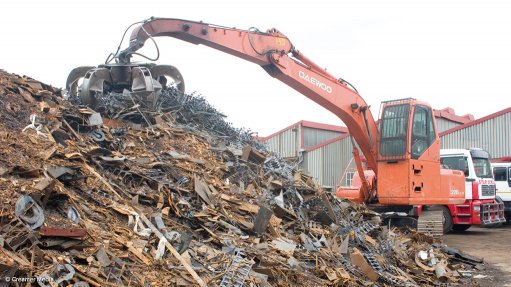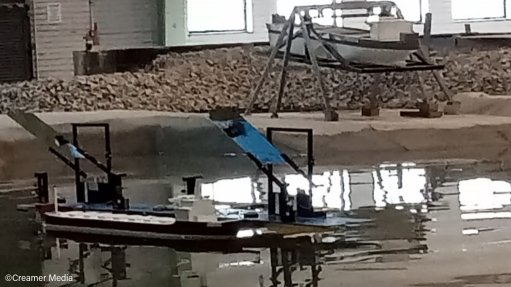Business must prioritise climate change, climate experts stress
In the lead-up to the State of the Nation Address (SoNA), it can be expected that President Cyril Ramaphosa will prioritise climate change and climate experts are of the view that this will have considerable impact on the private sector.
Directors and business leaders should view climate risks and opportunities as more than a reporting or disclosure matter, says nongovernmental organisation World Wide Fund for Nature (WWF) business development executive head Justin Smith.
He adds that climate change, together with biodiversity loss, is one of the biggest and most systemic challenges of the current time.
“Despite the clear goals of the Paris Agreement, and the urgent need for each country to put in place the necessary plans to curb emissions, progress is still much too slow, and the threats and impacts of climate change are becoming ever more critical,” he notes.
Considerable losses caused by extreme weather cost the global economy $280-billion in 2021, and the number and scale of these events continue to grow each year, leading to it being recognised as one of the top risks to the global economy by the World Economic Forum’s (WEF's) Global Risk Report over every time horizon.
“Although COP26, in Glasgow, in November 2021, saw some substantial progress in terms of improved Nationally Determined Contributions (NDCs) from many countries, it’s still not enough to shift our global climate trajectory and ensure we remain within a 1.5 °C temperature increase scenario,” says Smith.
A notable outcome of COP26 and one that is posited to be included in Ramaphosa’s SoNA is the $8.5-billion just transition financing package to assist South Africa shift away from a coal-based energy system to a more renewable energy-based system.
However, Smith cautions that this transition needs to happen in a manner that creates new opportunities for businesses and communities that are currently part of the coal supply chain, while at the same time ensuring South Africa’s economy is not hit by trade barriers and tariffs owing to being too carbon emission-intensive.
Therefore, corporate and investment sector participation is critical, he emphasises.
“If we are serious about addressing the challenge of climate change, we must continue to engage the corporate and investor sectors in our efforts to influence the redirection of financial flows as a powerful lever to release money for sustainable investments. At the same time, we should withdraw the resources that underpin environmentally, socially or economically harmful impacts,” he notes.
Currently, South Africa’s Presidential Climate Change Commission is undertaking an extensive stakeholder and community engagement on this topic in recognition of the fact that climate risk is not only an environmental issue, but also a direct economic and social issue, with implications for the future competitiveness of the country and the livelihoods of its people.
In the 2021 edition of the 'Trialogue Business in Society Handbook', a publication produced yearly by responsible business consultancy Trialogue, Smith advises directors and business leaders to understand that Scope 1 and 2 emissions are unlikely to be the only source of their climate risk.
They should look up and down their value chains to identify vulnerabilities, as well as opportunities for growth, it notes.
The WEF Global Risk report published early in January continues to highlight how central environmental and social risks are to the stability and future of the global economy. Over the five- to ten-year horizon the top five risks are all environmental in nature, including climate action failure, extreme weather events and biodiversity loss.
Trialogue manager Matthew le Cordeur emphasises that directors need to factor climate change into their deliberations about strategy, risk management and opportunities as part of their duty of care.
“Both the Companies Act and King IV [Report on Corporate Governance] create a basis for the expectation that directors should have the necessary skill and experience to perform their duties, and that this should extend to a broad range of matters that could significantly affect an organisation’s ability to create value,” he notes.
Le Cordeur explains that this has two implications for boards.
Firstly, all directors should have a foundational understanding of climate change and other key environmental, social and governance (ESG) issues.
Secondly, given the complexity associated with climate and biodiversity issues, and growing expectations around disclosure, appropriate risk management and engagement with stakeholders, directors with specific experience should be recruited or developed.
“Very little director training on climate and ESG issues seems to be available in South Africa, and more effort will need to be made by the Institute of Directors and similar organisations to close this gap,” says Le Cordeur.
Comments
Press Office
Announcements
What's On
Subscribe to improve your user experience...
Option 1 (equivalent of R125 a month):
Receive a weekly copy of Creamer Media's Engineering News & Mining Weekly magazine
(print copy for those in South Africa and e-magazine for those outside of South Africa)
Receive daily email newsletters
Access to full search results
Access archive of magazine back copies
Access to Projects in Progress
Access to ONE Research Report of your choice in PDF format
Option 2 (equivalent of R375 a month):
All benefits from Option 1
PLUS
Access to Creamer Media's Research Channel Africa for ALL Research Reports, in PDF format, on various industrial and mining sectors
including Electricity; Water; Energy Transition; Hydrogen; Roads, Rail and Ports; Coal; Gold; Platinum; Battery Metals; etc.
Already a subscriber?
Forgotten your password?
Receive weekly copy of Creamer Media's Engineering News & Mining Weekly magazine (print copy for those in South Africa and e-magazine for those outside of South Africa)
➕
Recieve daily email newsletters
➕
Access to full search results
➕
Access archive of magazine back copies
➕
Access to Projects in Progress
➕
Access to ONE Research Report of your choice in PDF format
RESEARCH CHANNEL AFRICA
R4500 (equivalent of R375 a month)
SUBSCRIBEAll benefits from Option 1
➕
Access to Creamer Media's Research Channel Africa for ALL Research Reports on various industrial and mining sectors, in PDF format, including on:
Electricity
➕
Water
➕
Energy Transition
➕
Hydrogen
➕
Roads, Rail and Ports
➕
Coal
➕
Gold
➕
Platinum
➕
Battery Metals
➕
etc.
Receive all benefits from Option 1 or Option 2 delivered to numerous people at your company
➕
Multiple User names and Passwords for simultaneous log-ins
➕
Intranet integration access to all in your organisation


















